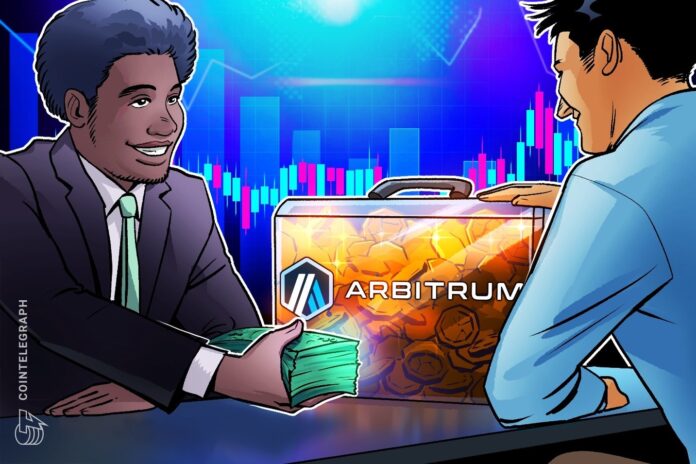As the countdown to the Arbitrum (ARB) token airdrop continues, crypto enthusiasts on Twitter are abuzz with speculation about its listing price. While the community is busy forecasting the price trajectory and benchmarking against other Layer-2s on Ethereum (ETH), several major crypto platforms have proudly announced their plans to list ARB.
With the airdrop just around the corner, investors and traders are eagerly anticipating the listing of the new ARB token on various crypto platforms. This article provides an in-depth look at the confirmed listing venues where enthusiasts can acquire ARB tokens after the March 23 airdrop, exploring what each platform has to offer.
Huobi and MEXC
Following the official announcement of the Arbitrum token airdrop on March 16, Huobi and MEXC wasted no time in revealing their plans to list ARB, and were the first to announce their listing on March 17.
Both platforms have confirmed that ARB will be listed for trading on March 23 — the same day as the airdrop. The token will be traded in pairs with USDT, and on Huobi, it will also be possible to trade against USDD.
Coinbase
Coinbase’s upcoming list of ARB tokens is highly anticipated and appreciated by U.S.-based traders and investors. As one of the leading trusted exchanges in the United States, the listing of ARB could spark a big uptick in the nation’s crypto market.
Binance
As more platforms began to announce their listings of the ARB token, the anticipation around Binance potentially listing the token intensified, leading to increased speculation within the crypto community. To no one’s surprise, Binance announced on March 20 that it would be listing the ARB token, further fueling the hype around this highly sought-after governance token.
With Binance being one of the largest global exchanges, its listing of ARB is expected to bring increased liquidity and exposure to the token, potentially propelling its value to new heights. Binance is scheduled to list the token on March 23 with listing pairs against both BTC and USDT.
XGo.com
In the wake of these major announcements, XGo.com is the latest venue to confirm the addition of ARB to its list of supported assets. The token will go live on the XGo platform on March 23 with listing pairs against USDT.
In addition to this announcement from XGo, several other platforms have confirmed its listing over the last few days. Other exchanges that have done so include OKX, Bybit and many more.
The growing anticipation surrounding the ARB token launch signals the crypto community’s eagerness to embrace innovative solutions within the Ethereum ecosystem. As various platforms confirm their support for ARB, investors and traders can expect a diverse range of options to acquire the token post-airdrop. The future is bright for the Arbitrum ecosystem, and the unfolding Layer-2 wars promise to bring about exciting developments in the world of blockchain technology.
What is Arbitrum?
Arbitrum is a highly-anticipated Layer-2 scaling solution built on top of the Ethereum blockchain, designed to improve the network’s overall scalability, speed and efficiency. Developed by Offchain Labs, Arbitrum employs a unique combination of Optimistic Rollups and secure smart contracts to enable faster and cheaper transactions while maintaining the security and decentralization inherent in the Ethereum network. By leveraging these innovative technologies, Arbitrum aims to alleviate the congestion and high transaction fees that have long plagued Ethereum, thus making decentralized applications (DApps) more accessible and practical for everyday use.
One of the main reasons Arbitrum is gaining significant attention in the crypto space is its potential to revolutionize the way developers build and deploy DApps on the Ethereum network. With its enhanced scalability, Arbitrum allows for more complex and sophisticated smart contracts that can power a wide range of applications, from decentralized finance platforms to NFT marketplaces. Moreover, Arbitrum’s compatibility with the Ethereum Virtual Machine ensures that developers can seamlessly migrate their existing DApps and smart contracts to the platform without having to learn new programming languages or rewrite their code.
Disclaimer. Cointelegraph does not endorse any content or product on this page. While we aim at providing you with all important information that we could obtain, readers should do their own research before taking any actions related to the company and carry full responsibility for their decisions, nor can this article be considered as investment advice.
Visits: 0










